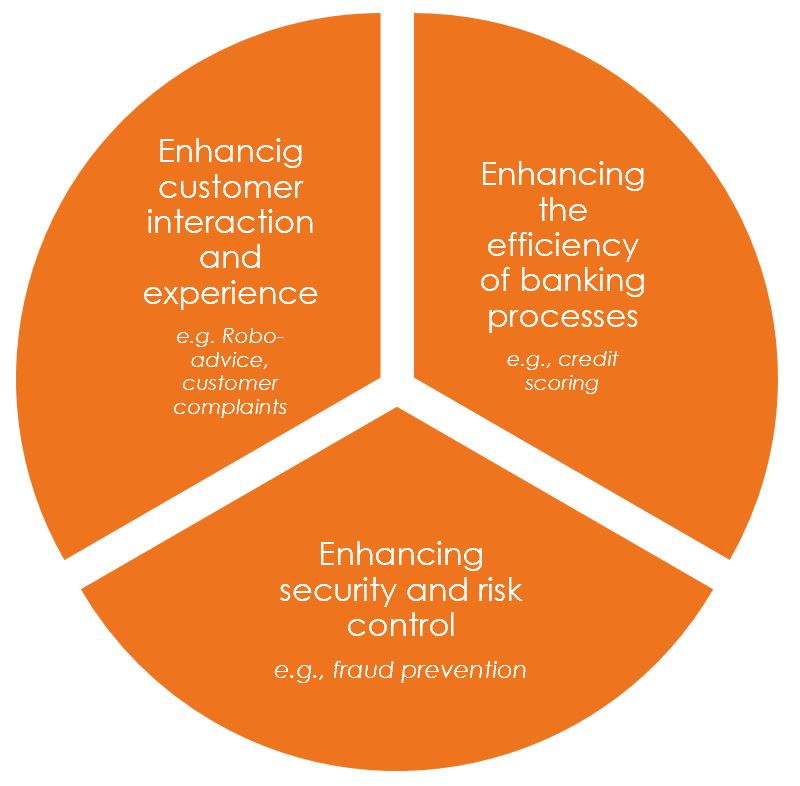“Artificial Intelligence is a huge opportunity in Europe, for Europe. We do have a lot, but we have to unleash this potential that is out there. We want this innovation in Europe. We want to encourage our businesses, our researchers, the innovators, the entrepreneurs, to develop Artificial Intelligence. And we want to encourage our citizens to feel confident to use it.”

“Europe is well placed to benefit from the potential of AI, not only as a user but also as a creator and a producer of this technology. It has excellent research centres, innovative start-ups, a world-leading position in robotics and competitive manufacturing and services sectors, from automotive to healthcare, energy, financial services and agriculture.”

Artificial Intelligence presents opportunities to increase prosperity and growth in Europe and is a key element for the development of the digital economy. On 19 February, the European Commission published its White Paper on ‘Artificial Intelligence – A European Approach to excellence and Trust’, setting out a two-pronged approach to accelerate the deployment of AI in Europe. The first pillar focuses on building an ecosystem of excellence through supporting the research and innovation community, developing skills, partnership with the private sector, and securing access to data and computing infrastructures, among other actions. The second pillar, building an ecosystem of trust, puts forward proposals for a framework on human centric AI.

White Paper on Artificial Intelligence: a European approach to excellence and trust, European Commission
Artificial Intelligence in the banking sector
At the European Banking Federation, we believe that AI provides great opportunities to enhance customer experience, democratize financial services, improve cybersecurity and consumer protection and strengthen risk management. Banks continue to invest in research and development of AI applications and the technology has come to play an integral role in a range of activities. As AI is an evolving technology, there is a need to ensure that the regulatory environment is fit for the use of AI by promoting innovation and legal certainty and maintaining a high level of consumer protection is paramount. Fostering a broad dialogue between all relevant supervisors and regulators on AI developments and their impact is a key priority for the banking sector and should be encouraged to ensure consistency and alignment across Europe and across sectors.
The EBF continues to contribute to the work of the European Commission’s High-Level Expert Group on AI, which looks to support the implementation of the European Strategy on AI.
AI FOR SECURITY PURPOSES: FRAUD PREVENTION: AI is providing great assistance in the detection of fraud and other suspicious activities that are linked to financial crime generally.
Banks traditionally divide fraud into two main categories: external (e.g., attacks on the bank or its clients related to money transfer, identity fraud, online payments, etc.) and internal fraud (e.g., malevolent actions from employees).
A Fraud Detection System (FDS) copes with such threats through feature engineering, supervised, unsupervised, and adaptive learning, by collecting transactional data, analysing it and learning from it, or through the interaction with FDS maintainers. It is able to identify suspicious events and limit fraudulent activities by suspending or blocking said activities. Fraud prevention proves to be even more efficient when customer profiles are created.
EBF member of the European Commission High-Level Expert Group on AI
As the voice of the European banking sector, the EBF has been accepted as a member of the European Commission newly established High-Level Expert Group on Artificial Intelligence (AI HLG).
The AI HLEG has the general objective to support the implementation of the European strategy on AI. It will notably produce draft AI Ethics Guidelines. It will also advise the Commission on next steps addressing AI-related mid to long-term challenges and opportunities through recommendations.









